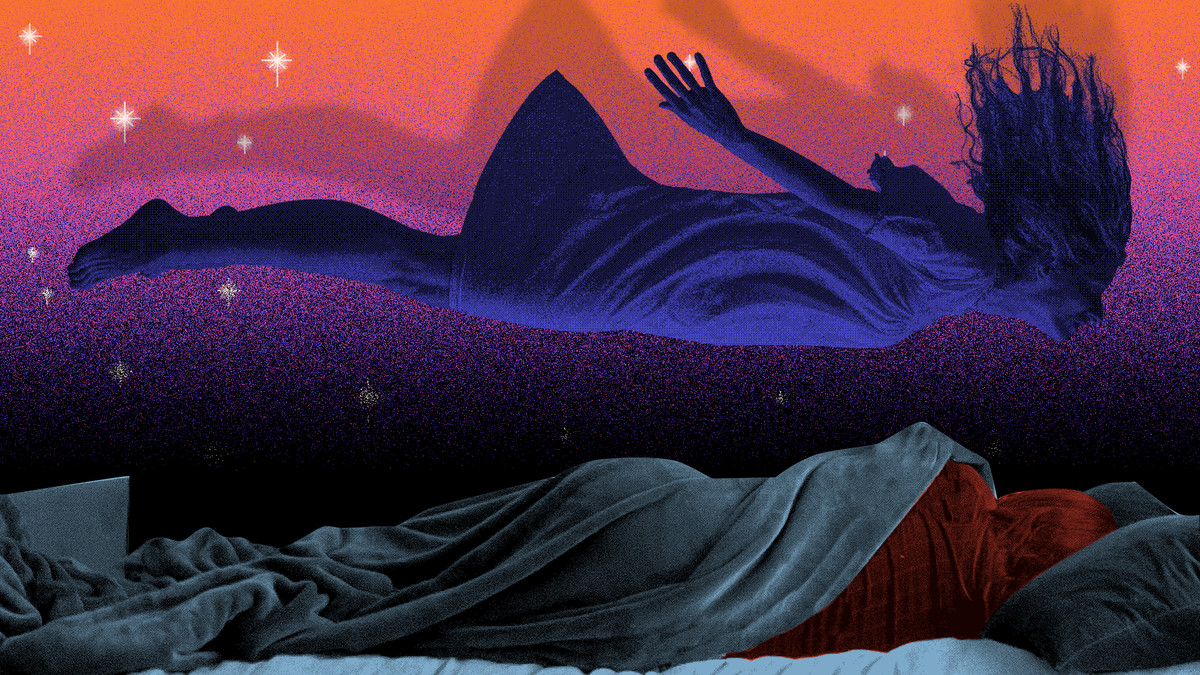Imagine waking up in the middle of the night, unable to move, unable to speak. A heavy weight presses down on your chest, and a shadowy figure lurks nearby. It feels like something out of a horror movie—but it’s very real to those who experience it. This eerie phenomenon is often called sleep paralysis, and for centuries, it’s been linked to supernatural encounters and night terrors.
But what is it really? Is it a trick of the mind, or could there be more to the story? Let’s unravel the mystery behind sleep paralysis and explore the chilling line between science and the supernatural.
What Is Sleep Paralysis?
Sleep paralysis occurs when you find yourself awake but unable to move or speak. It happens during the transition between sleep and wakefulness, usually when falling asleep (hypnagogic) or waking up (hypnopompic).
During this time, your body is still in REM sleep (Rapid Eye Movement), a phase where the brain is active, but the body is paralyzed to prevent you from acting out dreams. In sleep paralysis, your mind wakes up, but your body remains “asleep,” creating a terrifying experience of being trapped in your own body.
Common Symptoms of Sleep Paralysis
- Inability to move or speak despite being conscious
- Sense of pressure on the chest or body
- Hallucinations, such as shadowy figures or whispering voices
- Feelings of fear or dread, often without a clear reason
- Episodes usually last from a few seconds to a few minutes
Science vs. Supernatural: Why Does It Feel So Terrifying?
- Scientific Explanation
Sleep paralysis is often linked to sleep disorders, irregular sleep patterns, stress, or exhaustion. The hallucinations occur because the brain is still partially dreaming, blending reality with dream imagery. - Supernatural Interpretation
For centuries, cultures around the world have associated sleep paralysis with supernatural forces:- “The Old Hag” in European folklore, believed to sit on people’s chests.
- The Jinn in Middle Eastern culture, mischievous spirits blamed for night terrors.
- Kanashibari in Japanese culture, a term meaning “bound in metal,” often linked to ghosts.
Many who experience sleep paralysis describe the sensation as intensely eerie, leading some to believe they’ve encountered a spirit, demon, or even aliens.
What Triggers Sleep Paralysis?
Sleep paralysis isn’t usually a sign of something supernatural but rather a mix of sleep disturbances and stress. Common triggers include:
- Sleep deprivation
- Irregular sleep schedules
- High levels of stress or anxiety
- Sleep disorders like narcolepsy
- Substance use or certain medications
How to Cope with Sleep Paralysis
- Improve Sleep Hygiene
- Maintain a regular sleep schedule.
- Create a calming bedtime routine to relax before sleep.
- Avoid screens and caffeine before bed.
- Reduce Stress
Practice mindfulness, meditation, or deep breathing exercises to reduce anxiety, which can help prevent episodes. - Sleep Position Matters
Sleep paralysis is more common when lying on your back. Try sleeping on your side to reduce the likelihood of an episode. - Recognize It’s Temporary
Knowing that sleep paralysis is harmless and will pass can help reduce the fear if it happens. - Seek Professional Help
If episodes are frequent or distressing, consult a sleep specialist or healthcare professional for guidance.
Could It Be More Than Science?
While science provides a solid explanation, the mystery lingers for many. The vivid, often terrifying hallucinations feel deeply real, and it’s no wonder they’ve been linked to supernatural encounters throughout history. Could there be more to these experiences than just brain chemistry? Or are our brains simply more powerful at conjuring fear than we realize?
The line between science and the supernatural is thin—and for those who’ve experienced sleep paralysis, the mystery remains.
Conclusion: A Fascinating Mystery
Whether you believe in science, the supernatural, or a mix of both, sleep paralysis is undeniably a fascinating and unsettling experience. It reminds us of the strange, complex world of the human mind—and perhaps, the mysteries that still lurk in the dark.
The next time you wake up frozen in fear, remember: you’re not alone, and the experience will pass. But whether it’s just sleep or something beyond the veil? That’s a question only you can answer.
Sweet dreams—if you dare.
